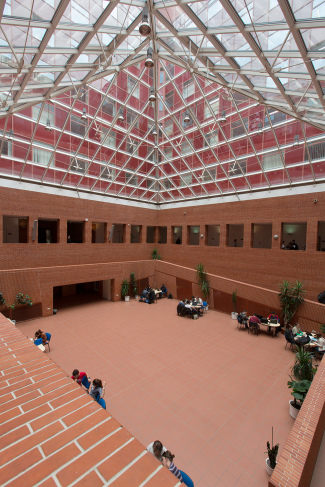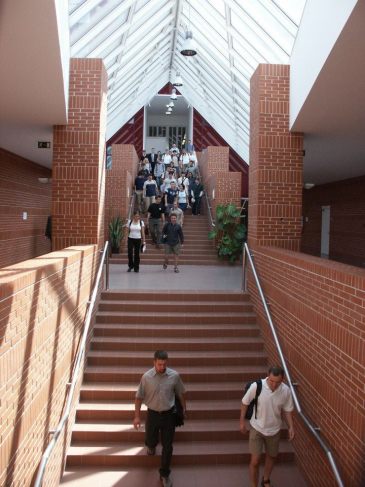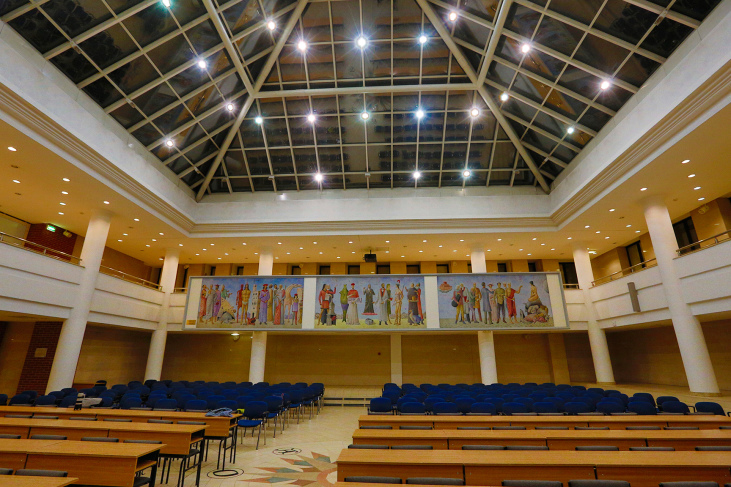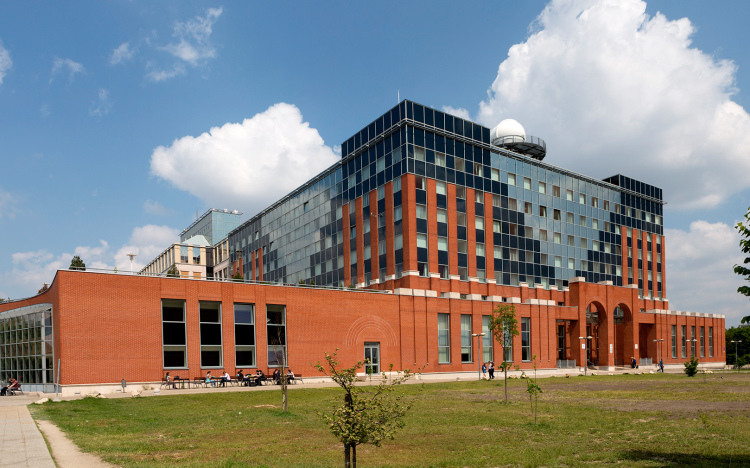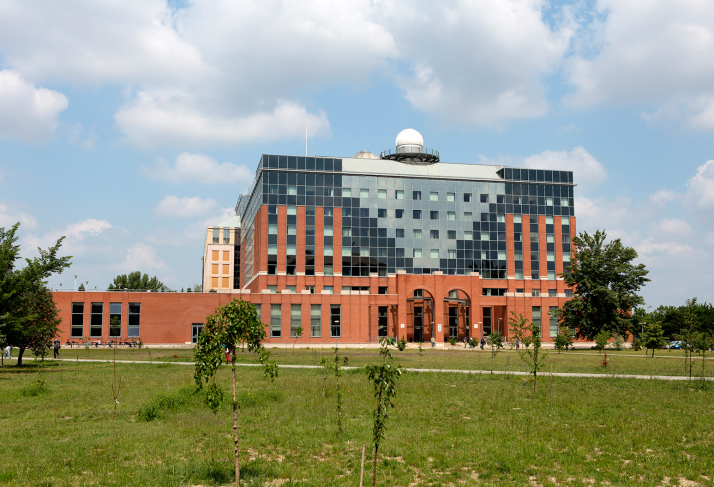Faculty of Informatics
Faculty of Informatics
History
Teaching informatics at ELTE was initiated in 1969. The courses, offered to students of mathematics, were called computing techniques. In 1972 professor Imre Kátay recognized the growing significance of informatics and initiated a new curriculum called programmermathematician. In order to organize the introduction of the new courses the Department of Numerical and Computer Mathematics was established. The number of students was increasing rapidly, from 60 in 1972 to 400 in the eighties, and it reached 2000 by the end of the nineties. The huge department had to be divided into three specialized ones, which together created the Institute of Informatics later on. In 2003 the Institute of Informatics and the Department of Cartography of the Faculty of Science established the Faculty of Informatics.
Training
The aim of the Faculty is to teach and train experts and teachers in the fields of informatics and cartography, in the latter especially experts in geoinformatics. Students graduating from the Faculty of Informatics will be able to meet the challenges of the 21st century information society and develop the infrastructure of informatics.
BSc programmes, which last for six semesters cover a wide area of knowledge including information processing techniques, programming languages, data structures, programming methodology, operating systems, and compilers. In addition to the theoretical aspects of informatics, the students learn about the design and development of large software systems. With a BSc degree students are able to find jobs in computer centres, in the industry or at any kind of company where computers are used for research or production.
The MSc level programmes last for four semesters. They are advanced courses which enable students to design and develop large software systems, or to organize and direct such type of tasks. On the other hand, the courses prepare students for research in different fields of informatics.
BSc studies
- Informatics for Computer Programming
MSc studies
- Cartography
- Geoinformatics
- Informatics for Computer Programming
- Informatics for Computer Programming
PhD School
The high scientific standard of PhD training is guaranteed by members of the Hungarian Academy of Sciences and Doctors of the Hungarian Academy of Sciences as well as many PhD holders taking part in the programmes as lecturers. Several internationally acknowledged scientist and experts participate in the work of the PhD School as lecturers of courses and seminars.
- PhD School of Computer Science
- PhD School Programmes
- Information Systems
- Numeric and Symbolic Calculus
- Basics and Methodology of Informatics
Departments of the Faculty
- Department of Algorithms and their Applications
- Department of Cartography and Geoinformatics
- Department of Computer Algebra
- Department of Computer Studies
- Department of Information Systems
- Department of Numerical Analysis
- Department of Programming Languages and Compilers
- Department of Software Technology and Methodology
- Department of Teacher Training in Computer Science
Faculty of Informatics
Faculty of Informatics
Eötvös Loránd University (ELTE) offers more than 60 degree programs in foreign languages in the fields of Education and Psychology, Humanities, Informatics, Law, Social Sciences and Science. Currently, about 2400 international students study at ELTE and the community of international students is growing from year to year. Check out what our international students think and discover the wide-range of opportunities waiting for you at ELTE. Join the growing international community of ELTE.
Eötvös Loránd University (ELTE) offers more than 60 degree programs in foreign languages in the fields of Education and Psychology, Humanities, Informatics, Law, Social Sciences and Science. Currently, about 2400 international students study at ELTE and the community of international students is growing from year to year. Check out what our international students think and discover the wide-range of opportunities waiting for you at ELTE. Join the growing international community of ELTE.
0
/
0


















0
/
0



